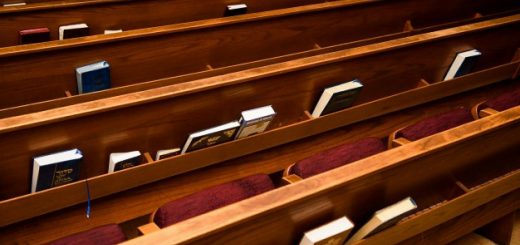Bricks for Bombs

A driver, reportedly shouting an Islamic slogan, rammed a vehicle into pedestrians in the French city of Dijon last Sunday, injuring twelve people.
Understandably, the attack (and several subsequent ones in France) brought back memories of this past autumn’s spate of vehicular terrorist attacks in Israel. Although they seem to have abated in Israel (despite much Palestinian social media encouragement that they continue), the devil’s brew of blood-lust and creativity in some Arab and Muslim hearts continues to boil apace.
Spewed from the cauldron recently was one Yasmin Sha’aban, who, according to the Shin Bet, was planning to carry out a suicide attack in Israel. She intended to receive a permit (“for medical reasons”) to travel from Jenin, where she lived, into Israel proper. There, she hoped to disguise herself as an expectant Jewish woman, with explosives hidden under her clothes, and create as much carnage as she possibly could.
That plot, baruch Hashem, was interrupted by Israeli security forces; Ms. Sha’aban and several compatriots were taken into custody. It turned out that her friends had also planned to bomb a bus carrying soldiers and to kidnap a soldier.
The perennial question returns: How to discourage such savage determination to kill and maim?
Well, not by resorting to vandalism, as members of an anti-Arab group called Lehava seem to feel is the solution. The group, which presumably also considers fires to be best extinguished with gasoline, has been linked to a number of attacks on Arab property, and, recently, on a school whose student body includes both Jews and Arabs.
For its part, the Israeli government has embraced a deterrent it had long abandoned (at the recommendation of a special military committee): the demolition of terrorists’ homes. The day after the Har Nof massacre, the military turned the house of Abdel Rahman al-Shaloudy, who had plowed his car into pedestrians a month earlier, into rubble.
Such demolitions, however, are understandably controversial, as they effectively punish family members who may not have had anything to do with the terrorist act. And while they may indeed give pause to some would-be terrorists, they may just as well encourage others who don’t particularly care for their family members (Not all Arab families, it’s rumored, are as close-knit and loving as the media portray them to be.) Finally, many nations consider the policy to be collective punishment and a violation of human rights (although some of them show precious little concern for human rights within their own borders, but never mind that). In any event, the Israeli Supreme Court is currently mulling the legality of the demolitions.
Sometimes, strangely, two problems can add up to one solution. In addition to domestic terrorism, Israel faces, at least on the international front, the strong disapproval, even by some of her most stalwart friends (like the United States), of construction in the “disputed territories.”
Many supporters of Israel assert that the country has every right to build as it sees fit not only in greater Yerushalayim but in Jewish outposts in Yehudah and Shomron. Indeed it does. But not everything that one has a right to do is necessarily the right thing to do. In 2009, Israel herself, and under her current Prime Minister, froze West Bank construction for a full 10 months, to coax the Palestinian Authority to resume peace talks in earnest (to no avail). For a number of reasons, largely having to do with internal Israeli politics, no similar subsequent action has taken place, despite the pleas and demands from others.
Enter my “Bricks for Bombs” plan. Here goes: An immediate year-long freeze is put into effect on all construction in Yehudah and Shomron, to encourage meaningful peace talks (and remove the easy excuse for some of the Israel-aimed ire). At the same time, a new policy is announced: For each terror attack, or discovery and foiling of a credible attack, permission to construct a building (or a given number of buildings) will be granted, despite the freeze.
With that plan in place, Israel will have shown its good will and sensitivity to the concerns of the nations of the world (Klal Yisroel is in golus, let’s not forget); Arab acts of violence will be deterred (since few terrorists want to be the cause, Allah forbid, of greater Jewish presence in Eretz Yisrael). And Israelis might go through their days feeling a bit more secure.
What’s more, the deterrent to terrorism will have taken the form not of destroying homes but of building them.
© 2014 Hamodia



Recent Comments